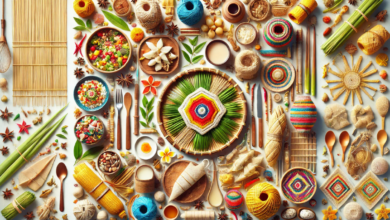Exploring Literot: Understanding the Art of Erotic Fiction

Introduction
Literot, often seen as a niche genre, has recently gained increasing attention in the literary world. It combines the allure of eroticism with the power of storytelling, exploring human desires, intimacy, and connection. While often regarded as explicit or taboo, literot is more than just explicit content; it is a form of literature that delves into human emotions and relationships in ways other genres might not.
The rise of literature reflects changing social attitudes toward sexuality and its representation in media. Over the years, this genre has evolved from being considered shameful or taboo to being recognized as a valid artistic expression. It is celebrated in books, online platforms, and even mainstream media. It plays a crucial role in the broader conversation about intimacy, identity, and human connection, proving that erotic fiction can offer more than just titillation.
What is Literot?
Literot, derived from the combination of “literature” and “erotica,” is a literary genre that combines narrative storytelling with erotic content. Unlike typical erotic fiction, literature focuses not only on physical intimacy but also on emotional connections, character development, and intricate plots. It explores the intricacies of desire, vulnerability, and relationships while engaging readers in rich, well-developed storylines.
At its core, literacy is about more than just the act of sex. The genre incorporates layers of emotions, desires, fantasies, and sometimes even deeper themes like love, trust, and personal growth. The characters are often complex, with their desires and emotions driving the narrative forward. The focus on emotional depth makes literature stand apart from other forms of erotica, as it appeals to readers not just physically but also intellectually and emotionally.
In contrast to other types of erotic fiction, literature may include elements of romance, mystery, and drama, providing a much richer experience for readers who crave more than just steamy scenes. The genre can uniquely mix fantasy with reality, allowing readers to explore their desires in a safe and imaginative space.
The Appeal and Popularity of Literot
One of the primary reasons for the appeal of literacy is its ability to create an intimate connection between the reader and the characters. Erotic fiction has always played a role in allowing individuals to explore their fantasies, but literature brings an emotional layer to that exploration. The genre will enable readers to delve into their desires while considering the accompanying emotions. For many, it is not just the physical acts that draw them in but also the connection between characters, the slow build-up of tension, and the development of mutual understanding and affection.
Additionally, literature offers a form of escapism. Like other genres that delve into fantasy or supernatural realms, literature allows readers to escape their everyday lives and immerse themselves in a world where they can explore their deepest desires. The freedom and exploration of reading literacy can be exhilarating, allowing readers to connect with themselves in ways that might not always be possible in their real lives.
In today’s digital age, the accessibility of literacy has played a significant role in its growing popularity. Online platforms, self-publishing, and e-books have made it easier for established authors and new voices to create and distribute their work. This has led to a rise in the genre’s popularity, as readers can now easily find content that resonates with their preferences. Moreover, the anonymity that online reading provides allows readers to explore their interests without judgment, further contributing to the genre’s appeal.
The Art of Writing Literot

Writing literacy requires a delicate balance of crafting engaging, realistic characters while weaving a plot involving sexual tension and emotional depth. One of the most critical elements in successful literature is the careful development of characters. These characters should feel like people with desires, flaws, and vulnerabilities. Writers must craft personalities readers can relate to, sympathize with, and invest in emotionally. Without strong character development, the erotic scenes may feel shallow or disconnected from the overall narrative.
Equally important is the build-up of tension. Erotica, at its best, is about anticipation and desire, and literacy is no different. Successful writers know how to tease and build emotional and physical tension, often letting it simmer for extended periods before reaching a climactic moment. The pacing of the narrative, the way characters interact, and the gradual unfolding of their desires all contribute to the sense of suspense that makes literature so compelling.
The plot is another essential aspect of literate writing. Unlike pure erotica, which often focuses solely on sexual encounters, literate writing incorporates a broader narrative arc that ties into the characters’ emotional journeys. Writers must develop an engaging storyline that connects the erotic content to the characters’ growth, struggles, and eventual resolution. Without a well-rounded plot, literacy can feel one-dimensional.
Ethical considerations are also paramount when writing literature. While creating an engaging and intimate story is essential, the portrayal of relationships should be consensual, respectful, and responsible. Writers should avoid harmful stereotypes or unrealistic depictions of power dynamics that could perpetuate harmful views of intimacy.
Literot’s Impact on Society and Culture
Literot has long been seen as a genre that challenges societal taboos and explores complex themes surrounding sex and intimacy. It reflects the changing views on sexuality and relationships, often pushing the boundaries of what is considered acceptable in mainstream culture. In this way, literacy provides a space for open discussion of topics that might otherwise be silenced or stigmatized, such as consent, sexual freedom, and non-traditional relationships.
At the same time, literacy often faces criticism and controversy. Many people view the genre as morally inappropriate or excessively explicit. However, supporters argue that it is simply another form of artistic expression akin to romance novels and serves an essential cultural role in discussing human desires and emotional connections. The genre can also promote healthy conversations about sex, exploring the variety of human experiences, preferences, and emotions that come with intimacy.
Another significant impact of literacy is its influence on readers’ views on relationships and intimacy. By reading literacy, individuals better understand their desires, boundaries, and emotional needs. It can help normalize the exploration of sexuality and encourage individuals to think more openly about their relationships and their sexual identities. In this sense, literacy can be a personal and cultural tool for redefining intimacy in the modern world.
Conclusion
Literot is a unique and multifaceted genre combining emotional depth and erotic storytelling. It offers readers a chance to explore their desires and fantasies meaningfully while also providing insight into the complexities of human relationships and emotions. Despite its often controversial nature, literature fosters conversations about intimacy, consent, and human connection. As society becomes more open-minded and progressive in its views on sexuality, literacy will likely continue to grow in popularity, providing readers and writers an outlet for exploring and expressing their deepest desires.
FAQs
- What is the difference between literature and other types of erotic literature?
- Literot emphasizes emotional depth, character development, and narrative structure, while other types of erotic literature may focus primarily on physical acts.
- Is Literot only meant for adult readers?
- Literature is intended for mature audiences, as it contains explicit content. However, it is often more nuanced than typical erotica, offering deeper emotional and intellectual engagement.
- Can writing literate be a legitimate career for writers?
- Absolutely! With the rise of digital publishing platforms, many writers have found success in the literature genre, building dedicated readerships and even turning their works into profitable careers.
- How can writers make their literacy more engaging and impactful?
- Writers can focus on developing complex characters, building tension, and weaving a rich plot that combines emotional and physical intimacy.
- Are there any legal restrictions or censorship surrounding literature?
- While some countries or platforms may restrict explicit content, literacy is generally accepted as a legitimate literary genre worldwide.
You May Also Read: https://topblogbuz.com/erosthot/




